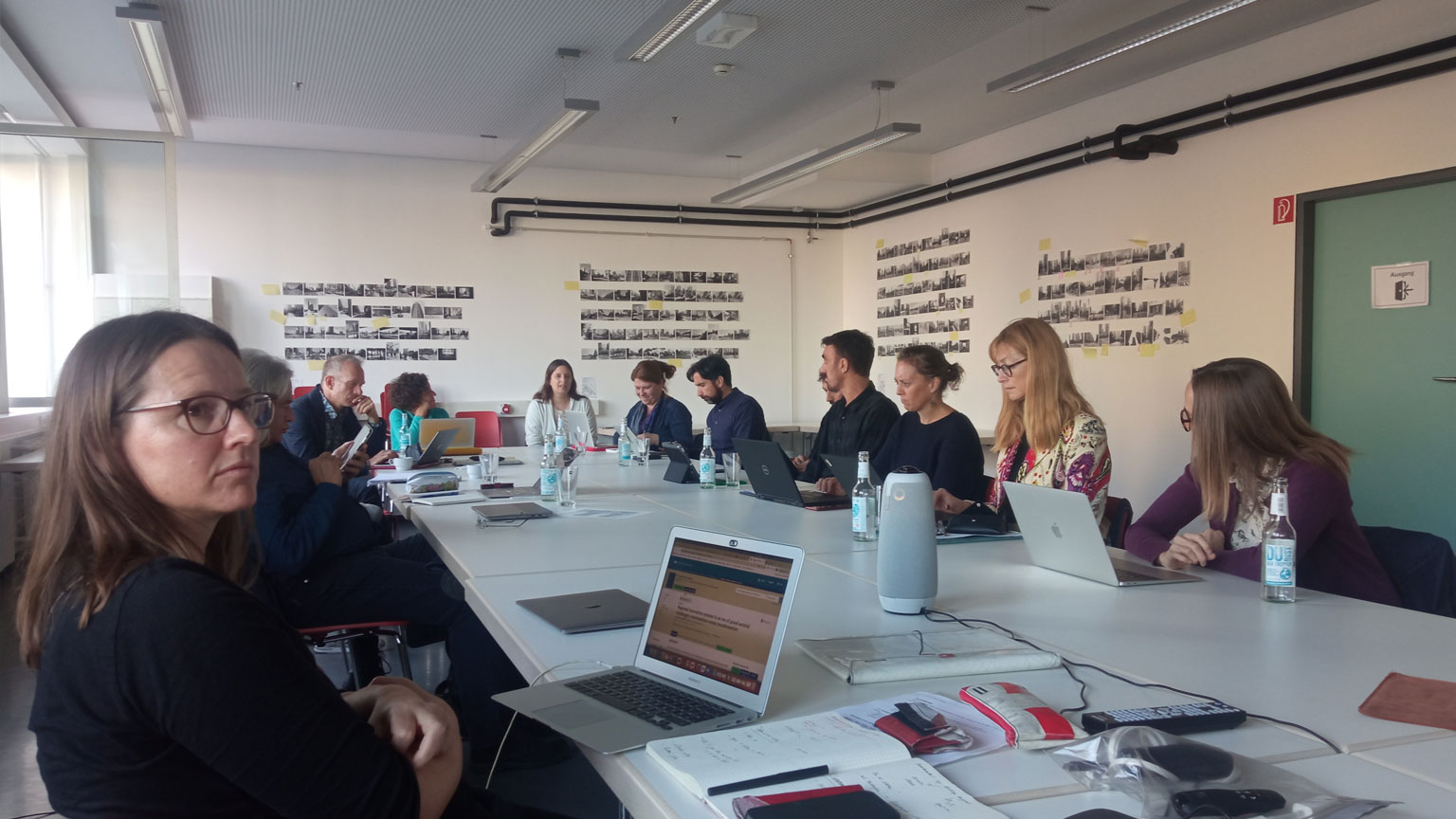
On the 17th and 18th of October 2022, the partners gathered in Berlin at the Technische Universität Berlin-TUB for the Kickoff of the GLAMMONS project.
After an introduction on Horizon Europe expectations by Mrs. Hinano Spreafico (EC Project Officer), the partners presented the general project overview, the timeline, and the Scientific contribution of the GLAMMONS project as well as the Challenges for the GLAMs: mapping the field across Europe before and after the pandemic.
Each partner gave a presentation of its work package and discussed the collective research and the different topics that will be developed through the three years of the project:
-The content and resources for GLAMs under commons,
-Communities, commoners and trauma,
-Exploring resilient financial and sustainable management processes and their impacts under commons,
-Informing policy towards the GLAMs of the commons,
-Management, data management, and ethics,
-Dissemination, communication, and exploitation activities.
Finally, the partners visited the Schwules Museum. Coming from a grassroots movement, the Museum remains a civil society project upheld by the voluntary commitment of many contributors that holds a special connection to the queer communities.
The story of the Schwules Museum begins in the year 1984, at the former Berlin Museum. At the initiative of three museum guards, the museum’s director allowed himself to be persuaded to take an innovative step. The three students and their activist ally Manfred Herzer had proposed to develop an exhibition on homosexual men and women in Berlin. In the summer of 1984, the legendary exhibition “Eldorado – the History, Everyday Life and Culture of Homosexual Women and Men 1850-1950” took place in the Berlin Museum, curated by the three initiators in collaboration with a group of lesbian activists. With over 40,000 visitors, the exhibition was just as successful as it was controversial. The resolution to fund the Schwules Museum crystallized out of this success.
In the offices of the “Allgemeine Homosexuelle Arbeitsgemeinschaft AHA” (General Homosexual Working Group) in Friedrichstraße, the foundation was laid for a museum, a library, and an archive. Today, the SMU stands as the most important international center for researching, preserving, and presenting the culture and history of queer individuals, sexual and gender diversity, and is a sought-after collaborative partner for museums, universities, cultural support institutions, artists, and activists from around the world.
The Schwules Museum is a perfect example of a collective space to engage with history and envision a future.
Funded by the European Union. Views and opinions expressed are, however, those of the author(s) only and do not necessarily reflect those of the European Union or European Research Executive Agency (REA). Neither the European Union nor the European Research Executive Agency (REA) can be held responsible for them.